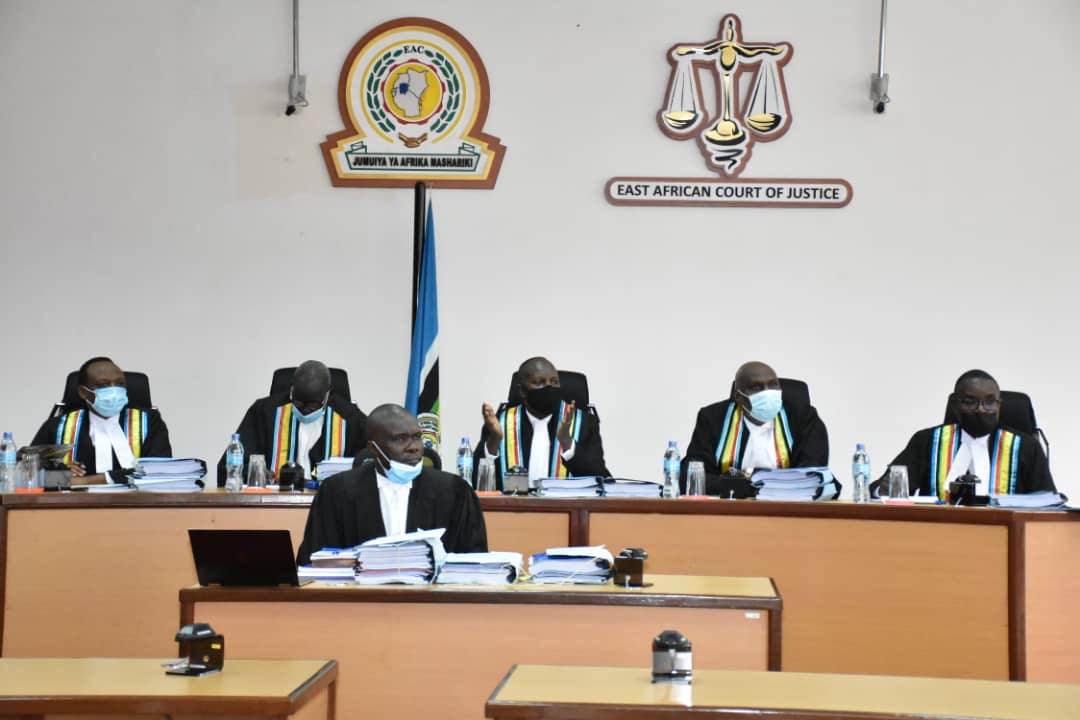Ezrah Kashumbusha.
KAMPALA, February 23, 2024 | The East African Court of Justice (EACJ) has taken steps towards resolving the controversy surrounding the East African Crude Oil Pipeline (EACOP) project by setting dates for a hearing and requesting submissions from various stakeholders.
Activist groups, including the Center for Food and Adequate Living Rights (CEFROHT), Natural Justice in Kenya, Centre for Strategic Litigation (CSL) in Tanzania, and the African Institute for Energy Governance, have been invited to file submissions seeking to overturn a previous ruling that blocked the construction of the EACOP project.
The Court has also called upon the Secretary General of the East African Community, as well as the Governments of Uganda and Tanzania, to submit their applications by April 22, 2024, through written submissions.
The appeals division of the East African Court of Justice, comprised of Justice Nestor Kayobera, Justice Monica Mugenyi, Justice Kathurina M’Inoti, Justice Cheborion Barishaki, and Justice Omar Othman Makungu, will preside over the case.
The petitioners argue that the EACOP project violates various international treaties and protocols, including the East African and International Treaty on the Protocol for Sustainable Development of the Lake Victoria Basin, the Convention on Biological Diversity, and the United Nations Framework Convention on Climate Change.
Dickens Kamugisha, CEO of Afiego, expressed satisfaction with the Court’s decision, stating, “We are happy that the court has set motion processes to ensure that justice is served for the benefit of communities and East Africans in general, who rely on their natural resources to make a living. Any projects such as EACOP that threaten these resources should be challenged.”
The Executive Director of Natural Justice emphasized the importance of protecting the environment and the well-being of the people in East Africa. She reiterated their commitment to presenting their case and supporting the sustainable future of the region.
With the upcoming hearings, stakeholders are hopeful that the EACJ will carefully consider the submissions and make decisions that prioritize environmental sustainability and the welfare of East African communities.















